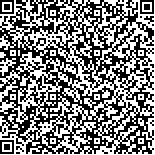The Impact of Composite Meteorological Factors on the Electrical Load in Guangxi
- Article
- Figures
- Metrics
- Preview PDF
- Reference
- Related
- Cited by
- Materials
Abstract:
The meteorological index-effective temperature (ET) is introduced to evaluate th e impact of various meteorological factors on electrical load in Guangxi on the basis that the latter is heavily influenced by the former. Analysis on the effe ct of air temperature, relative humidity, wind speed and ET on the electrical lo ad from April to October indicates that there is significantly a positive correl ation between the air temperature and electrical load, which implies that the ai r temperature is the main factor responsible for the variation of electrical loa d. Furthermore, in summer, the composite effect of the composite of air temperat ure and wind speed as well as that of air temperature and relative humidity on t he electrical load change is far larger than the composite of the relative humid ity and wind speed.The electrical load is linearly increased with the air temperature or the ET for June to September; whereas, the load is not fully incr eased with the ascending of temperature in the transition season of spring, summ er and autumn, in the stage of the temperature is not too high, the load has a d ownward trend with the increasing of relative humidity. However, when the temper ature is beyond a certain temperature, the load is increased with the ascending of air temperature and effective temperature.
Keywords:
Project Supported:
Clc Number:


Mobile website









